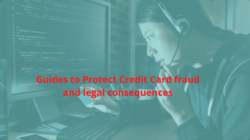Cyber scams are online scams and security is how we protect ourselves from such scams. The following is a description of this article The development of computer, telecommunications and information technology has grown very rapidly in the current era. Due to the increasing knowledge and curiosity of people in this field and the increasing number of facilities available for people to learn information technology easily.
Through the Internet, transactions can be completed quickly and efficiently. Doing business or doing business over the internet is better known as e-commerce. In addition to the benefits, the internet also has negative impacts. The development of information technology, informatics and communication has given birth to a new crime that has different characteristics from traditional crimes. Computer misuse, as one of the consequences of these three trends, is inseparable from its unique nature, giving rise to new problems that are quite difficult to solve and related to the problem.
Some of the common crimes or Cyber scams that occur on the Internet are:
Phishing
Phishing I think it’s good to share with the community Phishing usually refers to seemingly official electronic notifications or messages, such as emails or instant messages. It is a form of social engineering.
Pharming
Pharming occurs when a hacker diverts website traffic from a legitimate website to a fraudulent website by exploiting the Domain Name System and DNS. By altering a computer’s information about how domain names track its IP address, the attacker causes the victim’s computer to communicate with the wrong server, a technique known as domain hijacking.
Internet Fraud
The use of Internet services or online software to defraud or exploit victims, for example by stealing personal information, which can even lead to identity theft. A very common form of online fraud is the distribution of fake security software. Online services can be used to make fraudulent offers to potential victims, conduct fraudulent transactions, or send fraudulent proceeds to financial institutions or other persons connected to the system. Online fraud can occur in chat rooms, emails, message boards or websites.
Link Click Fraud
Link Click Fraud occurs when affiliates of pay-per-click ad networks use spyware to force views on their website or clicks on ads. The affiliate is then paid a commission based on the artificially generated CPC. Affiliate programs like Google AdSense pay high commissions, which encourages the creation of fake clicks. With clicks costing up to $100 and the online advertising industry worth over $10 billion, this is a growing form of Internet fraud.
Charity Framer
Scammers pretending to be charities ask victims of natural disasters, regional conflicts, etc. to donate. For example, Hurricane Katrina and the 200 tsunami are popular targets of charity scams, other charity scams are easier to commit, such as collecting money for cancer patients, collecting money from charities for AIDS virus research, collecting donations for children’s orphanages. There are also scammers who pretend to work at orphanages or related non-profit organizations, such as the Red Cross. Scammers ask for donations and often link to online news articles to strengthen their story of raising money.









